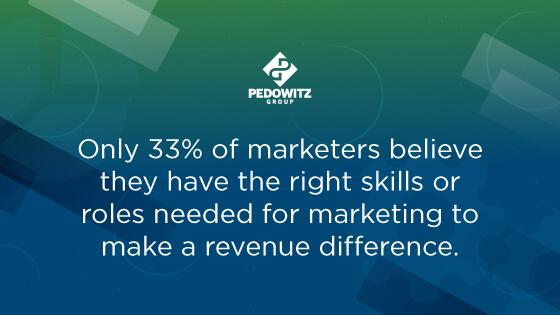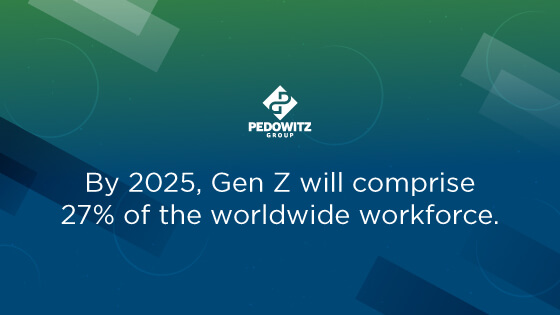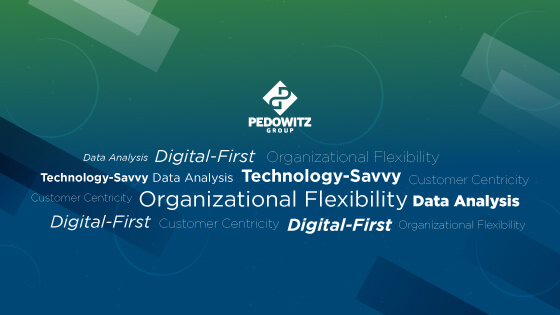Anyone who’s consumed business-focused content in the past 12-18 months has likely encountered more than their fair share of thought leadership on “The Great Resignation”, the trend of employees quitting jobs to pursue other opportunities. It’s gone on so long that we’ve now transitioned into “The Great Reset”, where companies seized power back and are reducing workforces at scale to address fiscal concerns.
For marketers, this is an especially acute issue as organizations often look to cull headcount from all teams outside of their revenue-producing stalwarts. We know all too well the struggle to prove to leadership that we not only deserve a seat at the revenue table, but also a hand on the wheel to steer the direction of the company.
What if, however, the framing of this phenomenon is all wrong, and the challenges facing marketing talent are just opportunities to remake your corporate culture to better position your organization and your marketing teams for success?
What if this is the ideal point to evaluate your team culture and what it means for current and prospective marketing talent?
The Roadblocks of the Traditional Marketing Organization
In a recent large-scale discussion executed in partnership with Adobe, some eye-opening insights came from the marketing talent participants speaking to the shifting landscape they deal with:

- Only 33% of participants in this discussion believed they have the right skills or roles needed for marketing to make a revenue difference. Put another way, a full two-thirds of marketing talent simply believes they’re not set up to succeed to making a measurable and attributable impact on the bottom line.
- To speak to that concern with even more detail, we learned that 71% of CMOs now have a quota and are assigned some level of revenue accountability. 63% of the marketers surveyed say they are under high pressure to deliver growth, yet only 53% are moderate confident or worse that they’ll meet these targets.
- The pandemic-driven shift to digital and event experiences were identified as primary reasons why companies cannot hire and train employees fast enough. Despite the landscape being digital-first or digital-only for years now, organizations are still playing catch-up when it comes to adapting the employee experience.
- “Team culture” is largely perceived as stale due to two fundamental shifts in the market: 1) Marketing is expected to directly contribute to growth and revenue, instead of the traditional metrics of brand and mindshare. 2) Customer expectations have changed in this new digital-first/only world.
Is it any wonder that so much churn and uncertainty is rampant in the modern marketing world?
Enter Gen Z
If you’re still laying these seismic shifts at the feet of those pesky “millennials”, it’s time to freshen up your references. It’s Gen Z (born 1997 or later) and their preferences that are driving the remote-first and digital-first landscape where hitting growth and revenue targets is far from a sure thing.

By 2025, they’ll comprise 27% of the worldwide workforce. By 2030, that number will grow to 33%. The priorities of this group differ greatly from their predecessors, naturally. In a recent Yahoo survey, 42% make work-life balance, remote flexibility and flexible vacation time their main priorities when looking for a job.
Another recent Gen Z survey indicated that a whopping 80% of participants wanted mental health days at work – an understandable consequence of the previously-referenced pressure to deliver concrete results. But we’re not talking a monolithic, mindless group of slackers that are begging for more breaks. They have a fundamentally modern and streamlined view of what a marketing organization culture should look like.
In the Adobe/Pedowitz Group discussion, ideas included:
- Blocking out a couple of hours each day for brainstorming and team problem-solving workshops. Even in a culture increasingly favoring remote work, Gen Z marketing talent highly values collaboration and mutual investment in achieving goals.
- Minimizing asynchronous communication such as direct messaging apps like Teams and Slack, as this style of communication can often be disruptive and inefficient. Additionally, emails should be dealt with in dedicated blocks rather than stopping current workflow to address them.
- Meeting-heavy organizations should implement 20 or 45-minute meeting times (replacing the 30 minute or 1 hour meeting, respectively) to give space to absorb a meeting along with time to transition to the next.
- Giving leadership two options to requests to manage expectations: 1) This is what the team can do with resources on-hand or 2) This is what they can do if they had a larger headcount.
Even as organizations scramble to figure out how to adapt smart, productive workplace tweaks like these, they face one final sobering statistic: According to a recent LinkedIn survey, 25% of Gen Z respondents hoped or planned to leave their employers within the next six months.
Gulp.
Missing Links
Now that you have a good idea of what younger marketing talent truly wants, let’s talk about how to best set the team as a whole up to succeed in this constantly-shifting landscape. For modern marketing orgs, there are key needs that must be addressed across the range of roles/positions on the team:

- Customer centricity – The perspective for all strategic and tactical decisions should be centered upon the best interests of your customers.
- Data analysis – Your organization can buy the most expensive analytics tech stacks in the world, but if someone doesn’t know how to clean it up, analyze and create actionable insights, it won’t do any good.
- Agility – Whether it’s an Agile work environment or another methodology, you have to identify the best cadences for your team because things move so quickly.
- Technology-savvy – It may sound rudimentary, but as revenue and marketing tech tools evolve quickly, so to must the training and re-training of your talent to allow them to fully leverage these platforms.
- Obsessed over online/digital behavior – Marketing receives tons of data in any given multichannel distribution of content and engagement. to sift through. Being able to understand how that all works together, then being able to tweak that as close to real time as possible is a critical skill for the fast-moving environment of today.
Speaking of data, we’ve given you a lot to consider as you consider the challenges of attracting, retaining and engaging modern marketing talent in the face of “The Great Resignation”. It may seem overwhelming when trying to apply this to your current talent and company culture.
To that end, we’re here to talk you through whatever roadblocks you face. In fact, we’re offering a free 30-minute strategy (not sales) call with one of our digital strategists who know what it takes to make this work for your organization. Let’s do this together.
